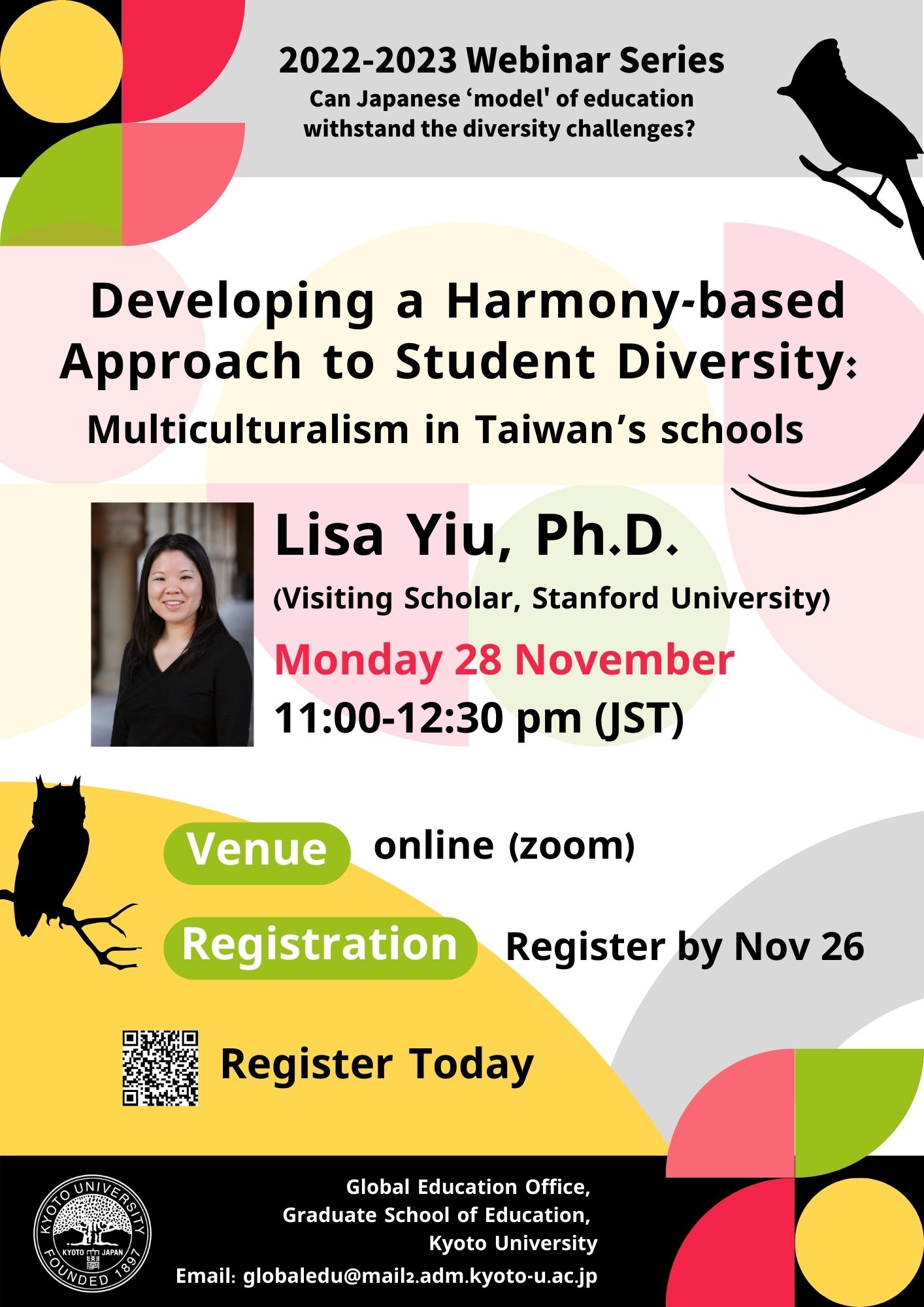
Developing a Harmony-based Approach to Student Diversity: Multiculturalism in Taiwan’s schools
| Date | Monday 28 November 2022 |
| Time | 11:00-12:30 pm (JST) |
| Venue | Virtual (zoom) |
| Language | English |
| Registration | Please register by November 26 on: Pre-registration form |
| Presenters | Lisa Yiu, Ph.D. Visiting scholar, Stanford University |
| Contact | Global Education Office Email: globaledu(at)mail2.adm.kyoto-u.ac.jp *replace (at) with @ |
| Website |
Abstract: Developing a Harmony-based Approach to Student Diversity: Multiculturalism in Taiwan’s schools
This talk’s premise is that the cultures, knowledges, and histories of Asia’s diverse societies constitute assets, not obstacles, in re-imagining multicultural education. To date, global discourses prioritize multicultural knowledge from research conducted in Western countries and defined according to Anglo-American paradigms that emphasize individuality, independence, and uniqueness. The prominence of such “global” multicultural knowledge motivates Asia’s policymakers and educational leaders to overlook local cultures, philosophies and histories as critical contexts to theorize alternative multicultural approaches.
Inspired by Kuan-Hsing Chen’s “Asia as method,” this talk has two goals. First, it aims to investigate a multicultural approach with Asia as the frame of reference, through a case study of Taiwan. Drawing on an ethnographic study in a progressive Taiwanese school, I document the harmony-oriented multicultural practices by administrators and teachers as they empower multi-ethnic Taiwanese youth to embrace their ethnic heritage; teachers apply multicultural practices centered on a cultural view of an interdependent self that prioritizes maintaining harmonious relationships with others. Second, it intends to lay a foundation for other Asian scholars to investigate how Asia’s schools can become more inclusive, by examining the relevance of this talk’s Taiwan-based multicultural framework to neighboring Asian societies that share intertwining histories, cultures, and politics.